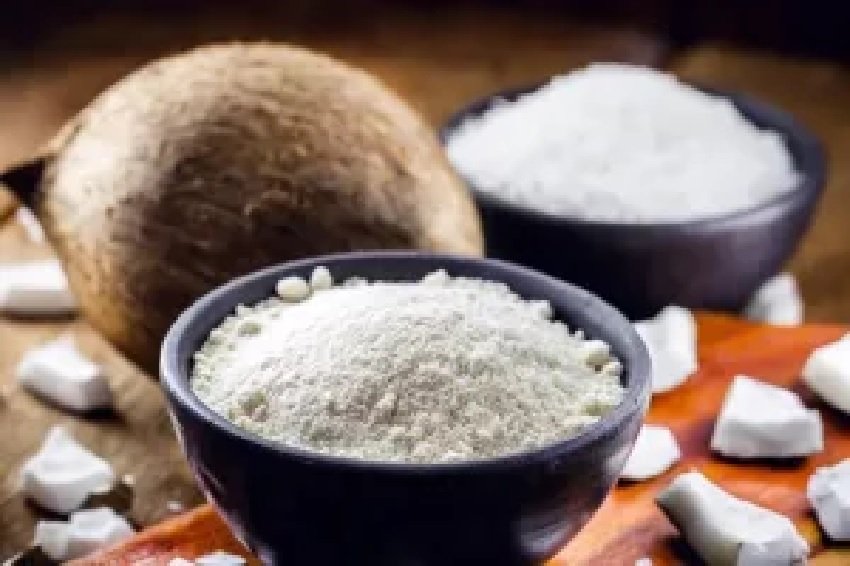Industrial starch manufacturers play a pivotal role in the global economy, producing versatile and essential raw materials that underpin many industries. Starch, derived primarily from agricultural sources such as corn, potatoes, and cassava is a crucial ingredient in food products and pharmaceuticals, paper production, textiles, bioplastics and adhesives. As the demand for sustainable and eco-friendly solutions continues to rise, industrial starch manufacturer are embracing innovative extraction processes and advanced technologies to enhance product quality while minimising environmental impact.
With an ever-growing focus on health trends and dietary preferences driving shifts in consumer behaviour—such as gluten-free diets—the need for high-quality starches has never been more pronounced. Moreover, industrial applications require customised solutions tailored to specific requirements regarding viscosity, gel temperature stability, or film-forming capabilities. Thus, expertise in formulation science becomes paramount for manufacturers striving to meet diverse customer needs.
In this dynamic landscape marked by challenges and opportunities—from fluctuating raw material prices to advancements in biotechnology—industrial starch manufacturers stand at the forefront of developing sustainable practices while continuously evolving their product offerings. Their commitment not only supports various sectors but also contributes significantly towards building circular economies that prioritize sustainability without compromising innovation.
Highlight the importance of quality and competitive pricing for the manufacturers.
Manufacturers must prioritize delivering high-quality products while maintaining competitive pricing. This strategy not only attracts customers but also fosters brand loyalty, ensuring long-term success in a crowded marketplace.
Overview of Leading Industrial Starch Manufacturer
History and background of the manufacturer
The manufacturer has a rich history, established decades ago, evolving through innovation and market demands. Their commitment to quality, technology advancements, and customer satisfaction has solidified their industry reputation.
Scope of operations and worldwide reach
The operational scope encompasses various functions across numerous regions, enabling a global presence. This extensive reach facilitates collaboration and innovation while adapting to diverse markets and cultural dynamics worldwide.
Description of their strong market presence
Their robust market presence is characterized by extensive brand recognition, a loyal customer base, strategic partnerships, and innovative products that consistently outperform competitors while effectively meeting consumer needs across various sectors.
Importance of Premium Quality Starch in Industries
Discuss how quality impacts industry operations.
Quality significantly influences industry operations by determining efficiency, customer satisfaction, and brand reputation. High-quality standards enhance productivity, reduce waste, and foster trust, leading to sustainable growth and competitive advantage.
Explanation of how premium grade starch benefits multiple industries – including textile, food and beverage, and paper
Premium-grade starch enhances various industries by improving texture and stability in textiles, thickening and emulsifying in food and beverages, and providing strength and smoothness in paper production.
Instance of the leading starch manufacturer’s quality control standards
The leading starch manufacturer maintains rigorous quality control standards, ensuring that all products meet stringent benchmarks. This commitment guarantees consistent excellence and reliability in their offerings for customers worldwide.
Competitive Pricing Strategy
Explanation of the manufacturer’s pricing strategy
The manufacturer’s pricing strategy involves setting product prices based on production costs, market trends, competition analysis, and customer demand to optimize profitability while maintaining a competitive edge.
Comparison of manufacturer’s pricing to industry standards
Analyzing how a manufacturer’s pricing aligns with industry benchmarks reveals its competitive positioning. This evaluation helps identify if prices are justified, excessive, or offer better value than alternatives in the market.
Impact of competitive pricing on purchasing decisions
Competitive pricing significantly influences consumer purchasing choices by creating perceived value among alternatives. When prices are lower, customers tend to prioritize those options, impacting overall market dynamics and sales strategies.
Manufacturer’s Premium Quality Offerings
Detailed look at the manufacturer’s product range
A comprehensive examination of the manufacturer’s diverse lineup showcases an array of products, highlighting unique features and innovations that cater to various customer needs and preferences within the market.
Explanation of their commitment to quality assurance
They prioritize quality assurance by implementing strict protocols, continuous monitoring, and regular assessments to ensure products meet the highest standards, fostering trust and satisfaction among customers and stakeholders alike.
Details on production processes that maintain product quality
Maintaining product quality involves meticulous production processes that incorporate stringent quality control measures, continuous monitoring of manufacturing steps, employee training, and the use of high-grade materials to ensure consistent results.
Brief on certifications that demonstrate quality commitment
Certifications serve as tangible proof of a company’s dedication to quality standards. They signify compliance with industry regulations and enhance consumer trust, ultimately fostering continuous improvement in products and services.
Introduction to Competitive Pricing Advantage
Case studies to highlight competitive pricing
This document features case studies that emphasize the significance of competitive pricing strategies, illustrating how businesses effectively optimize their pricing to gain a competitive edge in their respective markets.
Relation between price, quality and value for industrial buyers
Industrial buyers often evaluate the interplay of price, quality, and value when making purchasing decisions. A higher price may indicate superior quality, but true value comes from meeting specific needs efficiently.
Impact of the manufacturer’s pricing strategy on market leadership
A manufacturer’s pricing strategy significantly influences its market leadership by determining competitiveness, affecting consumer demand and brand perception. Effective pricing can enhance profitability, drive sales volume, and secure a strong market position.
Benefits of Choosing this Manufacturer
Summary of key reasons to choose this manufacturer – quality and price
This manufacturer stands out due to its exceptional quality and competitive pricing. Customers benefit from reliable products that deliver high performance without breaking the budget, making it an attractive choice.
Mention of customer satisfaction statistics
Highlighting customer satisfaction metrics provides valuable insights into client experiences, enabling businesses to identify areas for improvement and enhance service quality, ultimately fostering stronger relationships and promoting loyalty.
Conclusion: The Essential Role of Industrial Starch Manufacturers
Industrial starch manufacturers are integral to various industries, offering versatile and sustainable products that support everything from food production to paper manufacturing, textiles, adhesives and beyond. Their ability to produce starches tailored to specific industrial needs ensures efficiency and innovation across multiple applications.
As global demand increases, particularly for biodegradable and environmentally friendly materials, these manufacturers are rising to the challenge by investing in advanced technologies and sustainable sourcing practices. By balancing high-quality production with eco-conscious solutions, they play a pivotal role in supporting industries that are striving for both performance and sustainability.
In essence, industrial starch manufacturers are not just suppliers—they are partners in progress, providing the essential materials that power modern industries and contribute to a more sustainable future. Their innovations and reliability make them indispensable in a dynamic global market.
Discussion on reliable supply chain
A reliable supply chain ensures consistent product delivery, minimizing disruptions. Engaging in open dialogue on challenges and innovations fosters collaboration, boosting efficiency and resilience while meeting consumer demands effectively.
industrial starch manufacturer FAQs
What is industrial starch?
Industrial starch is a versatile carbohydrate derived from plants, primarily used as a thickening agent, stabilizer or binder in various applications such as food processing, paper manufacturing and adhesives.
Why is there a shortage of Argo Corn Starch?
The shortage of Argo Corn Starch stems from disrupted supply chains, rising demand in various industries, agricultural challenges affecting corn production and increased competition for raw materials.
What is most commercial starch made from?
Most commercial starch is primarily derived from crops such as corn, wheat, and potatoes. These sources undergo processing to extract starch for various food and industrial applications.
How is starch made in industry?
In industry, starch is produced by hydrolyzing plant-based carbohydrates like corn and potatoes. Enzymes break down the polysaccharides, resulting in gelatinization, refining and then drying to create usable starch products.










